With 6 international articles before graduating from university, of which 2 were "rank A", Nguyen Nang Hung is considered a "terrible" case of Hanoi University of Science and Technology.
Recently, Nguyen Nang Hung (born in 2000), a new engineer in Vietnam - Japan Information Technology, Hanoi University of Science and Technology, received news that he won a full master's scholarship from the Japanese Government. The 10X will begin his journey at the University of Tokyo - the number 1 school in this country on April 1. Each choice is an experience. Nang Hung graduated from Hanoi University of Science and Technology in October 2023 with a GPA of 3.58/4.0. Although he was "close" to an Excellent degree, Hung has never felt regretful about his student years. “At Polytechnic, there are usually two types of students: the type who will focus all their time on studying and often graduate with very high scores, some even reaching 3.8 - 3.9. The second type will both study and participate in other activities such as part-time jobs, Youth Union activities... As for me, during my 5 years at Hanoi University of Science and Technology, I spent a lot of time in the lab,” Hung said. 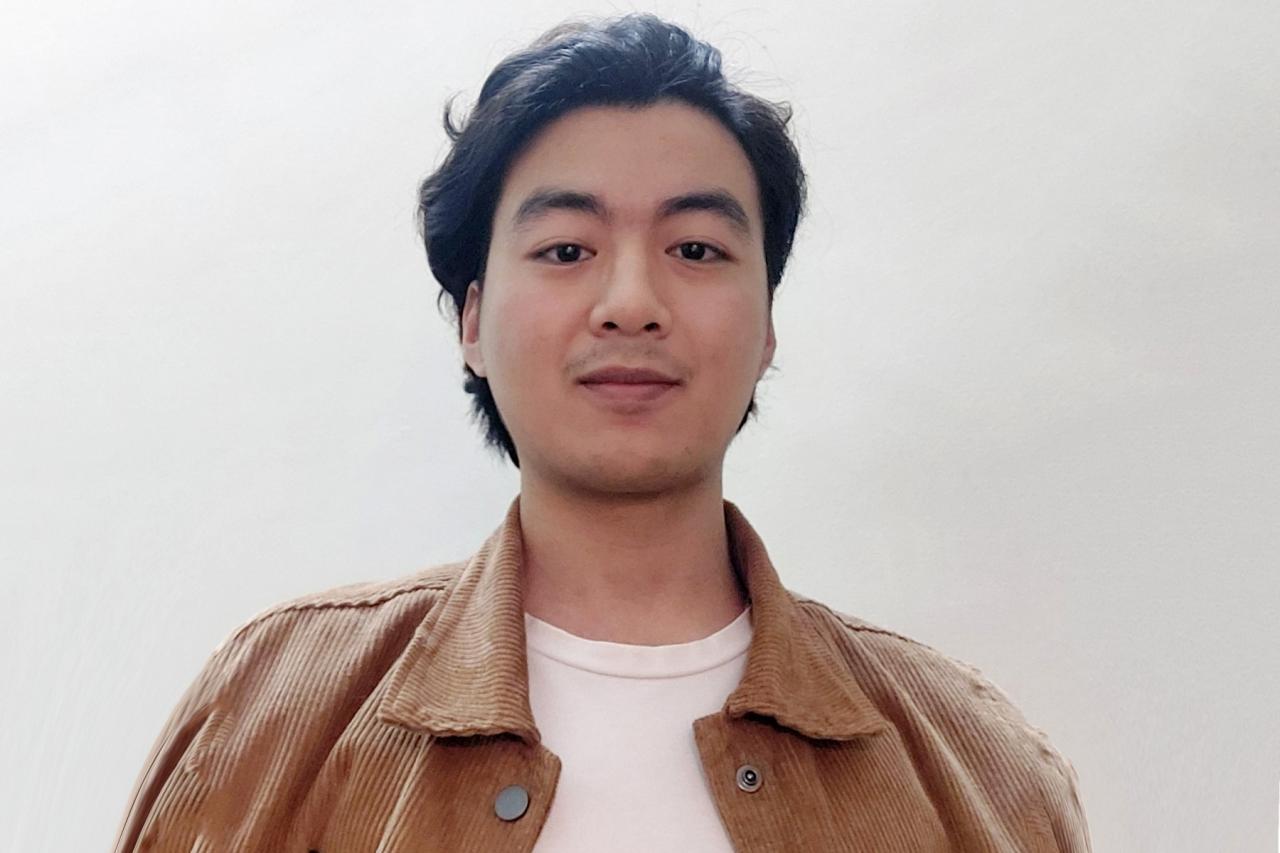
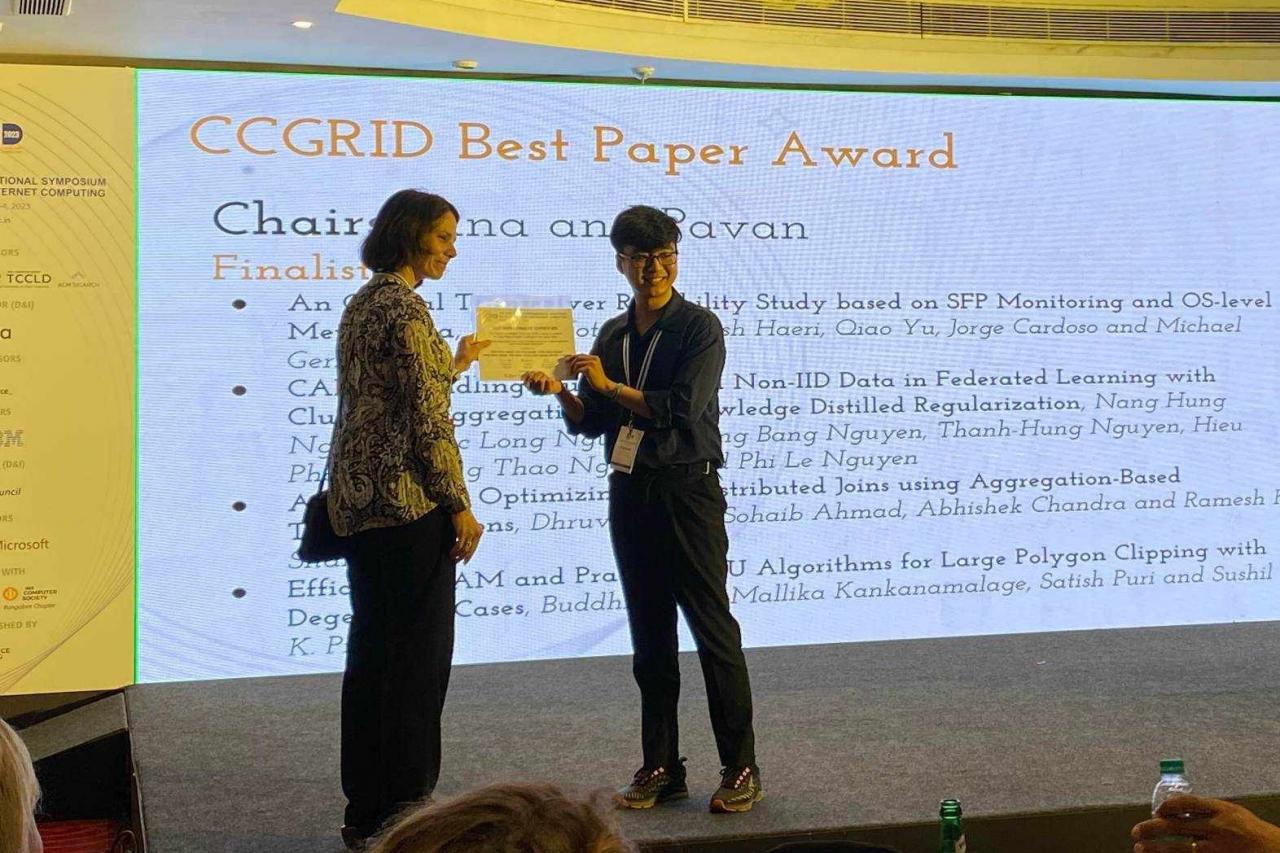
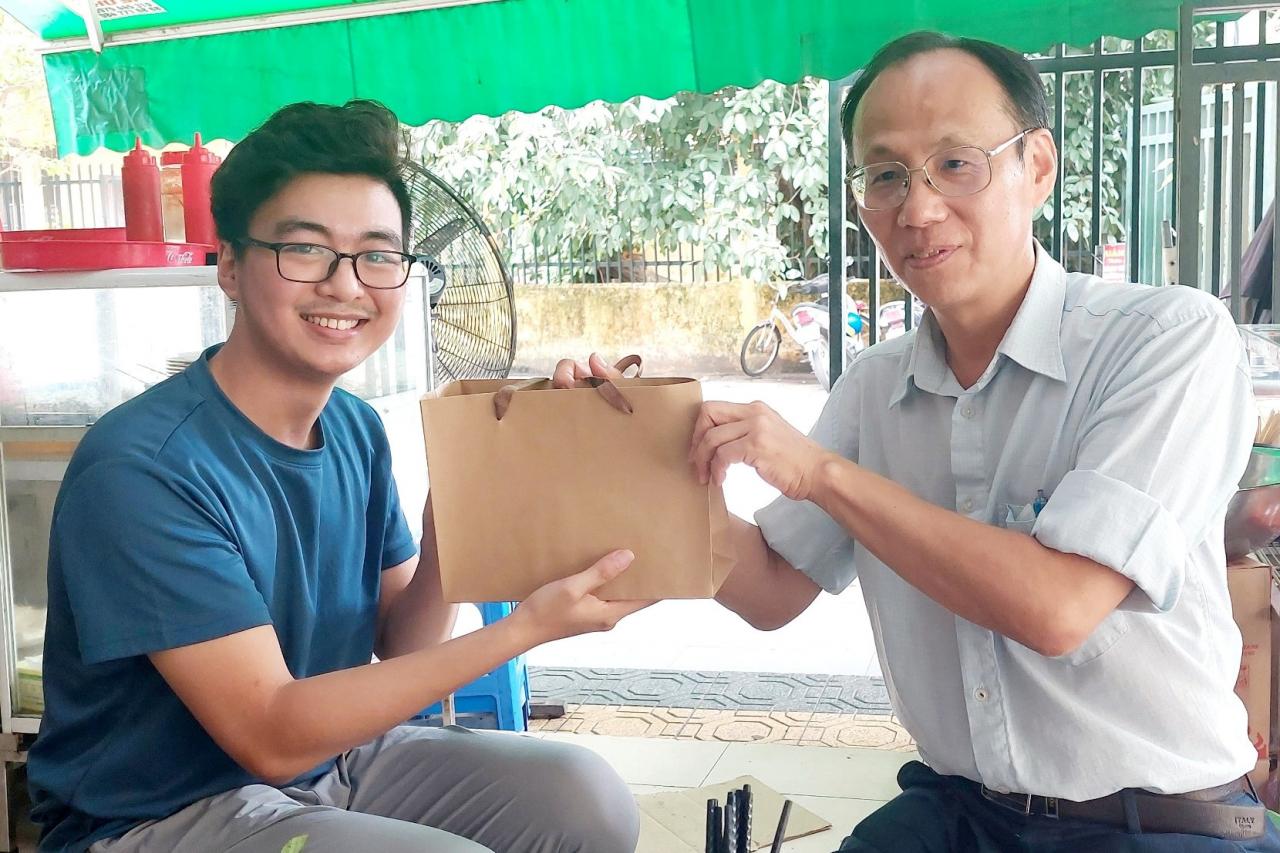 Hung's application preparation process was very quick, only within 3 months. Before submitting the application, thanks to the connection of Associate Professor Dr. Nguyen Phi Le, Hung had the opportunity to discuss, interview and was lucky to be accepted into the lab by a professor at Tokyo University (Japan). Hung believes that before submitting an application for a government scholarship, candidates should research the research direction and contact the professor they are interested in in advance. "If no professor has accepted the lab, the possibility of the candidate failing the interview round will be very high." In addition, in the essay, according to Hung, candidates should share in detail about the research direction, research experience and number of publications; how the topic affects society; where the topic is difficult and what research is needed. In addition, candidates should also share specifically the plan to implement during the years of studying in Japan and emphasize that they are capable of doing it. “The important thing is that candidates need to show careful preparation and have a systematic study plan. Recognizing the candidate's determination, the review board will agree to award the scholarship.” On April 1, Nang Hung will begin his journey to study abroad in Japan. Looking back on the past, Hung realized that crises are not always bad. Sometimes, crises are opportunities to help each person realize the need to change, do different things to improve their self-worth. “The crisis I encountered was the fear of being outdated and not useful for the labor market. When facing those crises, I think that if I am open to receiving and willing to listen to advice from those around me, there will definitely be a suitable solution.”
Hung's application preparation process was very quick, only within 3 months. Before submitting the application, thanks to the connection of Associate Professor Dr. Nguyen Phi Le, Hung had the opportunity to discuss, interview and was lucky to be accepted into the lab by a professor at Tokyo University (Japan). Hung believes that before submitting an application for a government scholarship, candidates should research the research direction and contact the professor they are interested in in advance. "If no professor has accepted the lab, the possibility of the candidate failing the interview round will be very high." In addition, in the essay, according to Hung, candidates should share in detail about the research direction, research experience and number of publications; how the topic affects society; where the topic is difficult and what research is needed. In addition, candidates should also share specifically the plan to implement during the years of studying in Japan and emphasize that they are capable of doing it. “The important thing is that candidates need to show careful preparation and have a systematic study plan. Recognizing the candidate's determination, the review board will agree to award the scholarship.” On April 1, Nang Hung will begin his journey to study abroad in Japan. Looking back on the past, Hung realized that crises are not always bad. Sometimes, crises are opportunities to help each person realize the need to change, do different things to improve their self-worth. “The crisis I encountered was the fear of being outdated and not useful for the labor market. When facing those crises, I think that if I am open to receiving and willing to listen to advice from those around me, there will definitely be a suitable solution.”

Nguyen Nang Hung has just won a full master's scholarship from the Japanese Government.
When he first entered the school, Hung never thought of following the “research path”. At the end of his first year, during a discussion, Hung met Associate Professor Dr. Nguyen Phi Le (currently the Executive Director of the International Research Center for Artificial Intelligence, Hanoi University of Science and Technology). At that time, Associate Professor Phi Le introduced the students to the lab and the research topics the lab was conducting. Feeling interested, Hung signed up to participate. As a first-year student who had not been exposed to many specialized subjects, most of the time at first, Hung focused on learning and building basic knowledge revolving around the research field of information transmission in sensor networks. Understanding the process of a paper, the approaches and finding directions for improvement… were all new things to Hung at that time. “But just like going to the gym, research is not a journey that produces immediate results, but a process that can even take several years to produce international publications. Just like going to the gym, many students do not stay in labs after the first 1 to 2 months,” Hung said. Hung also realized that the advantage of young people is that they are ready to face new things, ready to learn and not afraid of change. Therefore, in 2021, after 2 years of learning and cultivating, Hung had his first publication as a co-author. “I was guided a lot in the first articles. But thanks to that, I have acquired the necessary skills to continue on the research path without depending too much on those who went before me.”
Hung received the award for outstanding article in India.
From the first results, the male student began to move faster on the research journey. In his third year of university, Hung had 2 publications as the main author and co-author related to sensor networks for self-driving cars. From his fourth year, the male student changed his research direction, solving problems related to AI. “It is a method of exchanging between computers to train AI models with high processing capacity. In reality, collecting user data is almost inevitable when wanting to have a highly effective artificial intelligence model, but this also raises issues related to privacy. To solve this, my research proposes a model that helps user data not need to be centralized and will be processed decentralizedly through data clustering”. Hung's paper was later accepted for publication at the ICPP'22 Conference (Rank A) in 2022. Also from this paper, realizing that there were still some shortcomings in the processing procedure, Hung analyzed related theories and continued to improve. In his 5th year, Hung completed research on how computers on the same network can communicate with each other, creating an AI model. This is also the paper that Hung was the main author of, which was listed in the top best papers of the CCGRID'23 Conference (Rank A) and presented directly in Bangalore (India). In parallel with doing research, Nang Hung also spent time balancing his studies. "For specialized subjects, I often try to focus on studying to have a solid foundation, thanks to which I achieved absolute GPA in some semesters," Hung said. Grateful for the "crises" of student life Graduating from university with a good degree, Hung was stuck between the choice of whether to continue studying or go to work immediately. 10X remembers the "crisis" he encountered when he first entered the lab, which was also the time he began to deeply approach specialized knowledge. "Inherently, IT is an industry with a fairly low "career age". Unlike a mechanic who can use his knowledge to make a living until retirement, the IT industry has an early elimination. If you only learn code and work on code, after 5-10 years, your value to the business will decrease and you will be eliminated very quickly. Typically, the wave of layoffs for IT positions in the US in mid-2023 and in Vietnam at the end of 2023". "How to maintain your value as long as possible?" is the question I have always wondered about since I first entered school. Reality has also shown me that my previous thinking was correct. ChatGPT and large language models have proven the ability to handle problems well for humans in many tasks. It is inevitable that AI will soon replace the simple workforce and a part of the high-average workforce. I think I have to follow a path that is difficult but ensures that I will always be renewed, be a valuable person and be able to contribute to the community and businesses. For this reason, after graduating, Nang Hung decided to continue studying and chose to "apply" for a scholarship from the Japanese Government. Hung's application preparation process was very quick, only within 3 months. Before submitting the application, thanks to the connection of Associate Professor Dr. Nguyen Phi Le, Hung had the opportunity to discuss, interview and was lucky to be accepted into the lab by a professor at Tokyo University (Japan). Hung believes that before submitting an application for a government scholarship, candidates should research the research direction and contact the professor they are interested in in advance. "If no professor has accepted the lab, the possibility of the candidate failing the interview round will be very high." In addition, in the essay, according to Hung, candidates should share in detail about the research direction, research experience and number of publications; how the topic affects society; where the topic is difficult and what research is needed. In addition, candidates should also share specifically the plan to implement during the years of studying in Japan and emphasize that they are capable of doing it. “The important thing is that candidates need to show careful preparation and have a systematic study plan. Recognizing the candidate's determination, the review board will agree to award the scholarship.” On April 1, Nang Hung will begin his journey to study abroad in Japan. Looking back on the past, Hung realized that crises are not always bad. Sometimes, crises are opportunities to help each person realize the need to change, do different things to improve their self-worth. “The crisis I encountered was the fear of being outdated and not useful for the labor market. When facing those crises, I think that if I am open to receiving and willing to listen to advice from those around me, there will definitely be a suitable solution.”
Hung's application preparation process was very quick, only within 3 months. Before submitting the application, thanks to the connection of Associate Professor Dr. Nguyen Phi Le, Hung had the opportunity to discuss, interview and was lucky to be accepted into the lab by a professor at Tokyo University (Japan). Hung believes that before submitting an application for a government scholarship, candidates should research the research direction and contact the professor they are interested in in advance. "If no professor has accepted the lab, the possibility of the candidate failing the interview round will be very high." In addition, in the essay, according to Hung, candidates should share in detail about the research direction, research experience and number of publications; how the topic affects society; where the topic is difficult and what research is needed. In addition, candidates should also share specifically the plan to implement during the years of studying in Japan and emphasize that they are capable of doing it. “The important thing is that candidates need to show careful preparation and have a systematic study plan. Recognizing the candidate's determination, the review board will agree to award the scholarship.” On April 1, Nang Hung will begin his journey to study abroad in Japan. Looking back on the past, Hung realized that crises are not always bad. Sometimes, crises are opportunities to help each person realize the need to change, do different things to improve their self-worth. “The crisis I encountered was the fear of being outdated and not useful for the labor market. When facing those crises, I think that if I am open to receiving and willing to listen to advice from those around me, there will definitely be a suitable solution.”Vietnamnet.vn
Source


![[Photo] Prime Ministers of Vietnam and Thailand visit the Exhibition of traditional handicraft products](https://vphoto.vietnam.vn/thumb/1200x675/vietnam/resource/IMAGE/2025/5/15/6cfcd1c23b3e4a238b7fcf93c91a65dd)



![[Photo] National Assembly Chairman Tran Thanh Man meets with Thai Prime Minister Paetongtarn Shinawatra](https://vphoto.vietnam.vn/thumb/1200x675/vietnam/resource/IMAGE/2025/5/15/e71160b1572a457395f2816d84a18b45)


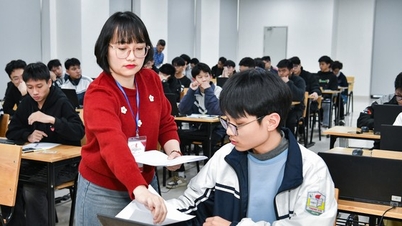





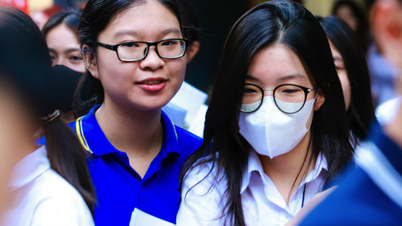

















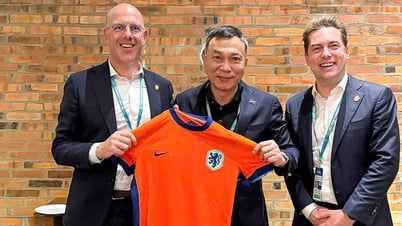




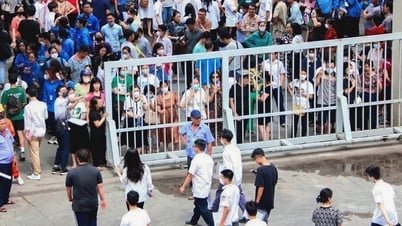


















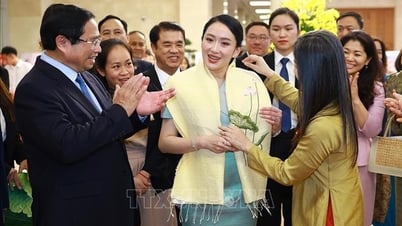

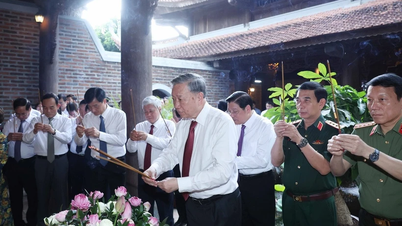









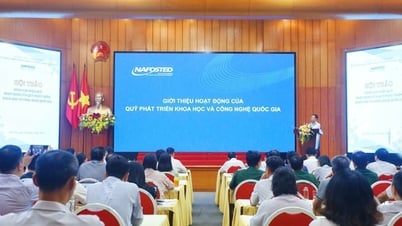

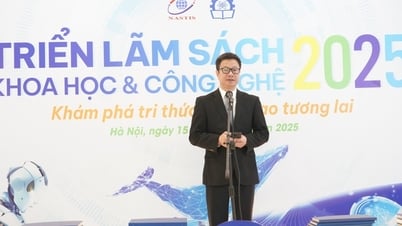

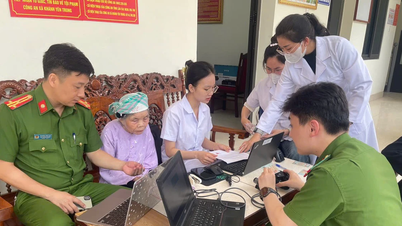





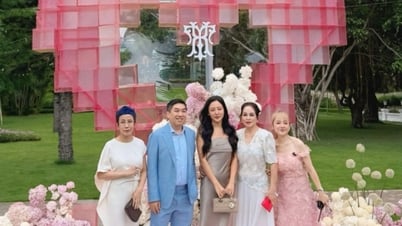












Comment (0)